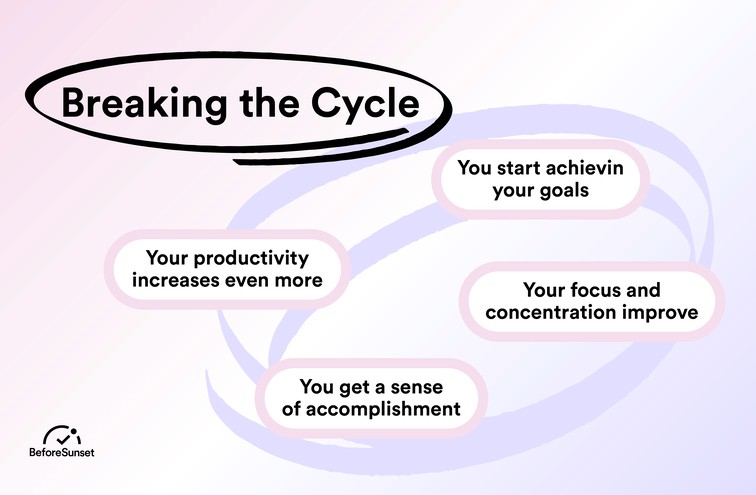It's so easy to get caught up in the never-ending loop of content switching between multiple tasks while also feeling overwhelmed in today's fast-paced environment.
It's because we try to get, maybe unnecessary or unimportant, things at once and try to have a productive day. But let me tell you, this not only stops us from having a peaceful and productive mindset but it also poses potential health risks.
The good news is that we can stop the cycle of wasting time and increase our productivity simply by being more aware of how we spend our time and putting simple techniques into practice.

What Happens When You Stop Wasting Time?
In short, wonders happen. When you stop wasting time and take the necessary steps to improve the areas in life, productivity will have a profound effect on your life. You can focus on what matters most to you and accomplish your goals when you stop wasting time. Here are some of the benefits you can experience when you stop wasting time:
You get a sense of accomplishment
You set realistic goals, carve the time out to work on them and try to be organized about how you spend your time. And at the end of the day, you feel accomplished when you see the result of your hard work.
Your focus and concentration improve
Having a clear vision of what needs to be done, setting realistic goals for each day, week, or month, staying on task without distractions, and giving yourself periodic brain rests help a lot.
Your productivity increases even more
Yes, being productive makes you more productive. To stop wasting time, you need to start finding ways to be more productive. But whether you realize it or not, while trying to be productive, you start creating a routine for yourself which will make you more productive in the long run.
You start achieving your goals
Setting goals and actually pursuing them requires not only motivation but also discipline. When you create a set routine for yourself, you actually take the step to work on your goals.
Goals give you a sense of purpose, help you stay motivated, and keep you from becoming complacent. Now, you are able to harness your energy toward productive tasks instead of wasting time on things that don't matter in the first place. What's more, having clear goals helps you clear distractions and allows you to have more focused work sessions.
Better mental health and reduced stress? Sign me up!
Being productive can improve your mental health because you have a sense of accomplishment and control over your life. It is also an outlet for frustration and stress.
When you feel productive, you feel more satisfied with your life and experience less stress and anxiety, which leads you to have more energy and focus on important tasks, and have time for personal pursuits, hobbies, and family time.
Who would say no to increased confidence?
Being productive and achieving your goals build up your self-confidence as you see yourself moving closer to success with each step. And when you see the results of the hard work that goes into reaching your goals and milestones, you feel more satisfied with yourself. As a result, you feel more confident in yourself.
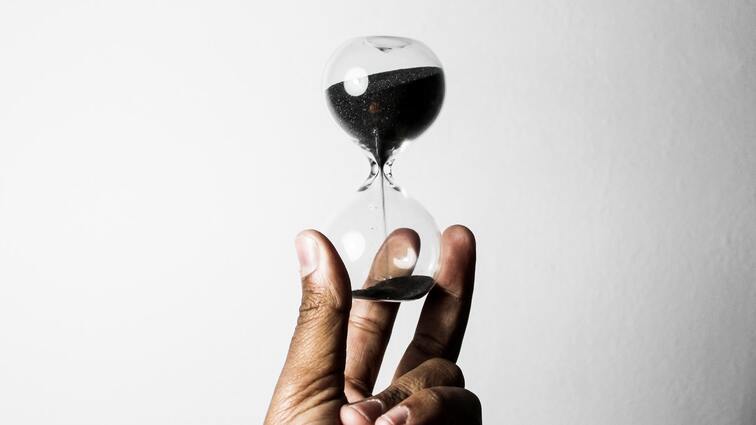
Now that we've talked about the benefits of productivity, we need to find out how to stop wasting time. We know, it is easier said than done. But here are some tips to help you stop wasting time and get some work done:
Identifying Time Wasters
Think about this question for a second: If you don't know where you waste your time, how would you be able to make changes in your routine to be more productive?
The First Step in Boosting Productivity
Now that you understand the importance of identifying where you are wasting time, it is time for you to work into your routine and actually decide if your tasks are necessary and serving a goal or a waste of your time.
These may include repetitive administrative tasks, time spent searching for documents, and wasting time on video calls and meetings.
Consider using a time-tracking tool to identify which tasks are time wasters and which aren't.
When you identify them, it's time for you to start analyzing them. Think about why you are wasting time on these activities and what can be done to reduce them or eliminate them altogether. Is there any way you can streamline or automate these tasks?
Setting Priorities
Once you have identified which tasks actually need your focus and attention, you need to start prioritizing them so that they can be completed faster with less effort expended overall.
How to Focus on What's Most Important
You can use the Eisenhower Matrix to help you with that. It helps you categorize your tasks into four quadrants based on their urgency and importance.
Urgent and important: Tasks that require immediate attention and have a significant impact.
Important, but not urgent: Tasks that are important, but don't have a specific deadline.
Urgent, but not important: Tasks that may be pressing, but have little impact on your goals.
Not urgent or important: Tasks that don't contribute to your goals.
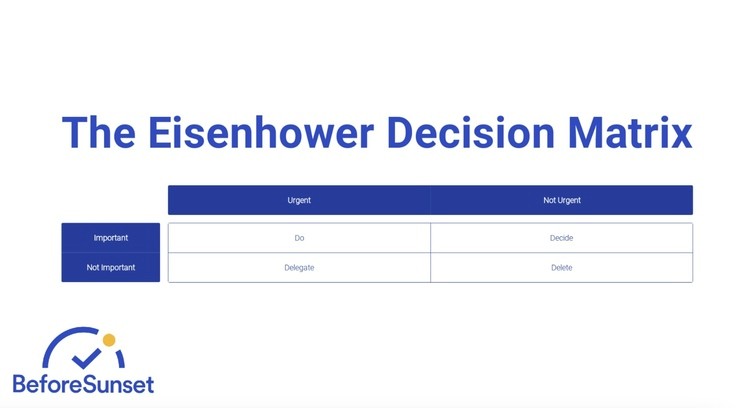
When you categorize your tasks into these quadrants, you can better understand which tasks are actually worth your time and which tasks you can eliminate or delegate.
Take Action to Reduce Wasted Time
You can increase your productivity and succeed in your tasks if you take steps to cut down on unnecessary downtime.
How to Stay Focused in a Busy World
Always keep in mind that you need to be attentive to your time, establish priorities and clear objectives, get rid of distractions, manage your time wisely, and take pauses to re-energize.
But if you are confused as to how to take action to stop wasting time and stay focused in a busy world. There are some following steps you need to follow:
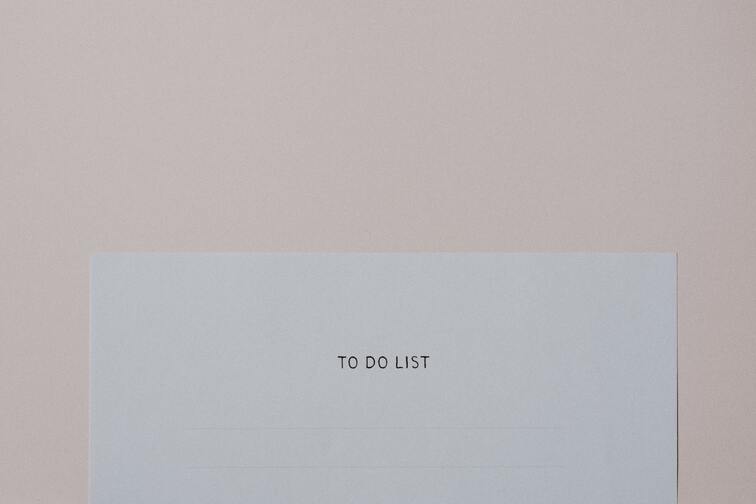
Break the goal down into smaller tasks that need to be completed in order to reach your overall goal.
For example, if your goal is to get more exercise, break it down into smaller tasks such as finding time for workouts each week and gradually increasing the intensity of those workouts over time.
Set realistic timelines for each task based on how much time it will realistically take you to accomplish them.
You should take into account how long your tasks typically take you. For example, if your goal is to write a term paper in one week’s time, plan out exactly how much time you need each day in order for it all to come together on schedule without sacrificing the quality or accuracy of the work done.
Make sure that all tasks are written down somewhere so that they can be tracked easily.
This could include creating a separate notepad specifically dedicated to this purpose. This will help keep track of progress made towards achieving goals while also ensuring nothing slips through the cracks during busy periods of life/work.
Reward yourself when you complete a step
After completing a task, reward yourself with something small like taking 10 minutes out of your day to watch TV/read a book, etc. This will help motivate you when completing other tasks as you know at the end you will achieve something, no matter how big or small the reward is.

Stay consistent: Steps to repeat every day
After deciding on what you want to accomplish, commit to working toward that goal each day.
Set aside time to put in the work needed to achieve your goal. This could be scheduling 5 minutes a day on Duolingo if your goal is to learn a language.
It's important to be realistic about how much time it will take you to work toward your goal and carve out that time in your schedule so that progress can be made consistently over time.
How to Break the Cycle?
Breaking the vicious cycle of wasting time on unimportant things requires both motivation and discipline. Inspiration is a key ingredient to achieving your goals. But we may not be able to find motivation and inspiration, and our discipline may be like an autumn leaf from time to time.
To understand and identify the areas of your life where you are wasting time, you need to look at work, personal life, and any other areas where you may be spending too much time on unimportant tasks.
Then consider if these tasks could be streamlined, automated, or delegated to save time for more meaningful pursuits. While doing this, consider the consequences of continuing to waste time in these areas- how would it affect you, or what kind of an impact will it have on your productivity?
Last but not least, try to make a conscious effort to reduce your time-wasting habits and free up more time for something more meaningful, inspiring, and enjoyable instead!
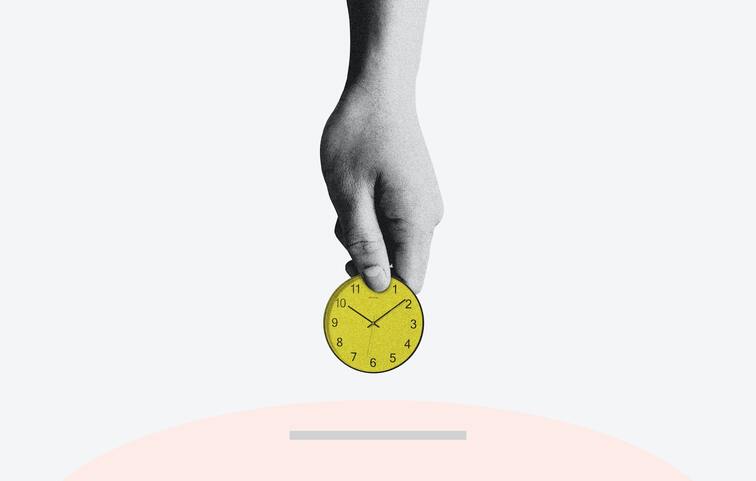
Stop Wasting Your Time
"Any time you have an opportunity to make a difference in this world and you don’t, then you are wasting your time on Earth." -Roberto Clemente
People have been wasting time on unimportant things, or things they think as important but in reality, aren't.
We need to understand that time is a precious source and we must be careful with how we spend it. Here, BeforeSunset comes into play.
With BeforeSunset, you can understand which tasks take much of your time and which are stealing your time. As we've said, you need to first understand the time waster activities. How would you do that without a time-tracking tool?

